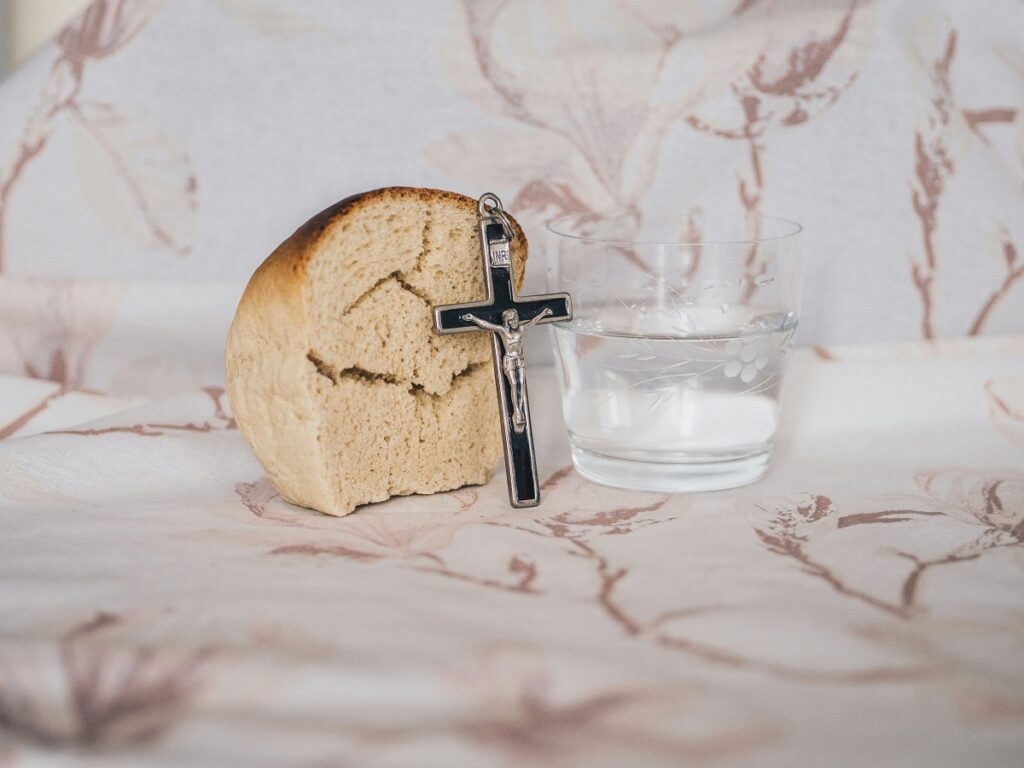Ramadan is frequently celebrated, but Catholic fasting has almost disappeared. Why is that?
No meat, no sweets or no food and drink at all. Ritual fasting occurs in religions all over the world, although the customs and periods differ greatly from each other. This year, the Islamic and Christian fasting periods happen to coincide. Univers asked cultural theologian Frank Bosman: what do both rituals have in common?

Some older Catholics can still remember the Lenten drum. Children put all their candy in there during Lent, until the Easter season had arrived. As a child, you were not allowed to touch it for forty days – an eternity for a child.
The traditionally Catholic rituals have now fallen into oblivion. The experience of Ramadan is quite different. It is a well-known phenomenon, also in Europe, in which large groups of Muslims participate. Ramadan now seems to be more well-known than its Christian counterpart.
Secularized
‘The Netherlands is a secularized country,’ says Frank Bosman, a cultural theologian at Tilburg University. ‘Since the 1960s, the originally ‘own’ Christian rituals and customs have disappeared from our field of vision and thus from our collective memory.’
At the same time, Eid al-Fitr is embraced by some Dutch people as a multicultural custom. Bosman: ‘These secularized Dutch people are fascinated by that strange religion, whose adherents seem to throw themselves so convincingly into the observance of their religious customs.’
Identity
Because Muslims in the Netherlands generally feel more involved in their community, and therefore also in the rituals and practices within their group. ‘These shared rituals and practices in turn create more bonding within the community,’ Bosman thinks.
For Dutch Muslims, participating in Ramadan is a confirmation of their own identity, also to the outside world. ‘Participating in Ramadan clearly shows that you are Muslim,’ says Bosman, ‘It shows that you stand for your faith and also propagate it.’
Abstinence
‘Fasting is not only important for Catholics and Muslims. It is a universal religious ritual,’ Bosman says. ‘Believers deny themselves food, drink, or other pleasant things to get closer to God and fellow man. In all religions, fasting is associated with austerity and repentance.’
And every religion has different fasting rituals. But all traditions attribute significant importance to the spiritual aspect. Fasting is about voluntary abstinence from material things. Devout Muslims deny themselves food and drink during the days of Ramadan, while Roman Catholics cut down on luxury products such as meat, tobacco, alcohol, or sweets.
Body and mind
Fasting is about disciplining the body, which also teaches discipline to the mind. In this way, as a believer, you can turn away from fun, but often trivial matters, and focus on love and attention for your neighbors and God, Bosman says.
It is a means for believers to concentrate on the higher, the divine, according to Bosman. ‘Through fasting, believers want to improve their relationship with God, and also with their fellow man. You have more time and attention for God and the other than for yourself and your own pleasure or need.’
Celebration
Both fasting periods end in a big feast, in which food and drink also play a role: for Roman Catholics it is Easter, for Muslims it is Eid-al-fitr. This year, Ramadan happens to partly coincide with the forty days of Lent before Easter. This year, Eid al-Fitr is celebrated around 30 and 31 March and Easter three weeks later on 20 and 21 April.
With the feasts, the believers do not want to nullify the fasting by surrendering to abundance again, because: ‘You don’t fast to fast,’ says Bosman firmly. ‘Fasting to prepare for something, to recharge your batteries, to refocus on what is really important in life. It is a temporary aid, and it must therefore be ‘interrupted’ again in order to maintain its healing function.’
Happiness gurus
Recently, fasting has also been gaining a lot of attention outside of traditional religions, especially online. ‘The emphasis on cleansing by fasting is also common among all kinds of happiness gurus and internet freeloaders, says Bosman. ‘Without any relevant prior knowledge, they give so-called health advice via TikTok and YouTube that make you sick rather than better.’
Modern variants of fasting such as Stoptober and Dry January do not have to be wrong in themselves. They can help people get rid of their unhealthy habits and focus on a healthier lifestyle, Bosman thinks.
‘But the difference with traditional fasting is that for believers, fasting is not an end in itself,’ says Bosman. ‘Fasting is a tool in search of a higher goal, namely aimed at improving the relationship with fellow man and with God. Of course, the latter element plays little or no role in modern variants.’







